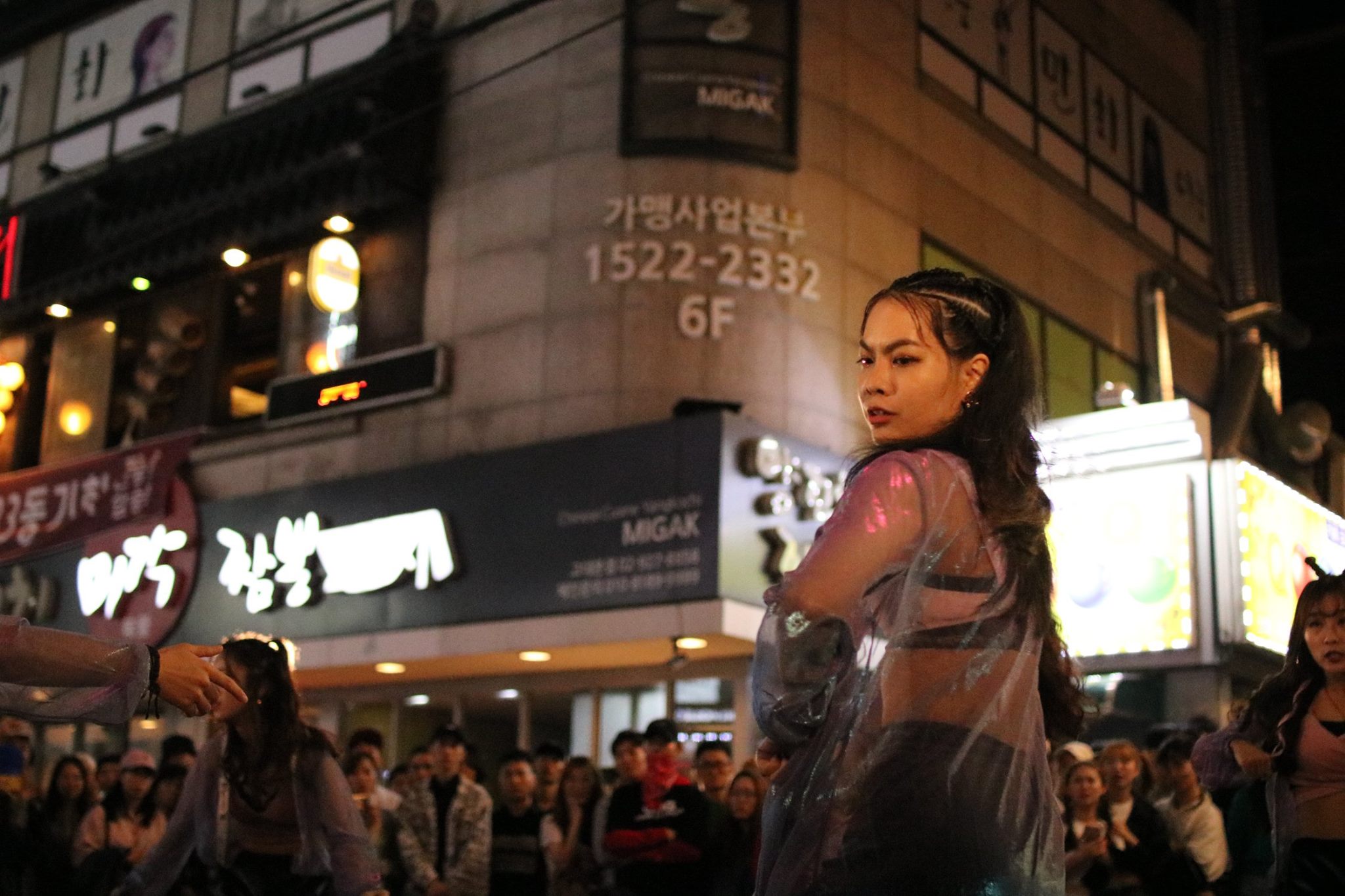It all started with Hoya.
If you’ve ever been involved in K-Pop fandom, you’ll know the saying, “You don’t choose your bias, your bias chooses you.”
In simpler terms, all fans experience attraction to particular members of K-pop bands. For me, Hoya of INFINITE was the one. He had been dancing since he was young, even dropping out of high school in South Korea in order to pursue his dream of becoming a singer. The sacrifice he made to chase his dreams inspired me to do the same, and perhaps this was why he meant so much to me.
This was in 2012. At the time, I was 19 and delusional. I was also confused about what to do after completing my A Levels. My classmates and friends were entering university, many of them with majors that matched their A level results. A common sentiment expressed was that their majors were not super interesting, but they were doing it because it might be “helpful” in the future.
As for me, the only thing I knew for sure was that I loved dancing, K-Pop, and bubble tea. I would do almost anything to just pursue my dream and get closer to those god-like idols. Hence my decision to become a background dancer—because I would be working in a close environment with idols; I would get to know them personally, which is basically every fangirl’s dream.
I was sure only that I did not want to be stuck in a competitive studying environment. I wanted to land a job that would get the majority of K-Pop fans jealous (ie. idol managers, makeup and hair stylists, music producers, background dancers, etc).
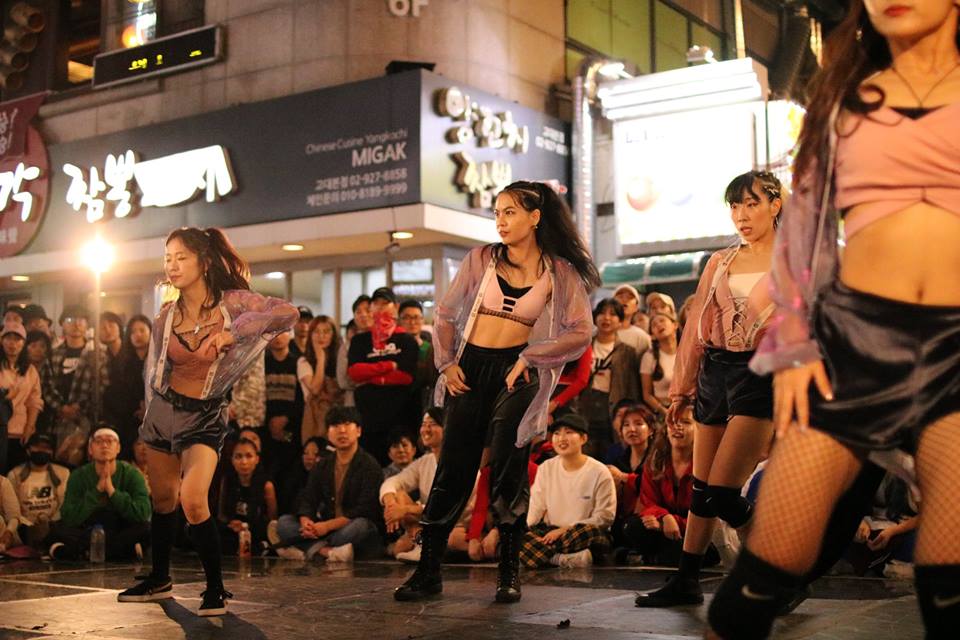
Like many other Asian parents, mine would have preferred that I become a lawyer, doctor, businessman, or something along those lines. ‘Entertainer’ or ‘musician’ would never have crossed their minds.
So when I first told them of my plan, they thought I was out of my mind. I did not know the language, and there was literally no one that I knew in Korea.
For a while, there was no peace at home. Yet I believed that I needed to do what I wanted to do. In the K-Pop industry, the younger you step into the industry, the higher the chance of you succeeding. This was also a case where the more my parents didn’t allow it, the more I wanted to do it.
And so I made a choice that many of my friends and family members could not understand. I left the sunny island, Singapore. Every time I recall that moment, I always wonder where my courage came from.
When I arrived in South Korea in August 2012, I began my basic Korean language studies. During that year and a half, I went for dance classes, and this was when I found out that I literally sucked at it.
In Korea, the education system is completely different. Over there, different schools cater to different needs, and the performing arts is actually a very popular choice of study. Some begin as early as 13, and often, kids start to get serious about dancing at around 16 or so. The students whom I attended the same dance class with were younger yet way more skilful. These kids knew the basics of hip hop (bounce, isolation, wave etc), while I knew nothing.
Having only joined my school’s dance club as a CCA when I first entered secondary school, I never really underwent the ‘training’ system. I was alright but not good.
Every time we finished learning a choreography, the instructors would allow us to take videos of ourselves. Monitoring my own videos, I noticed how I was always the one lacking in power and emotions. Instead of giving me the confidence, it began to drain my morale, and I did not know how to practise to improve my skills.
I knew that I shouldn’t have been comparing myself to the other girls who danced professionally, yet I couldn’t help myself. This was even though I knew that while I was at school, they were also dancing and building up their skills.
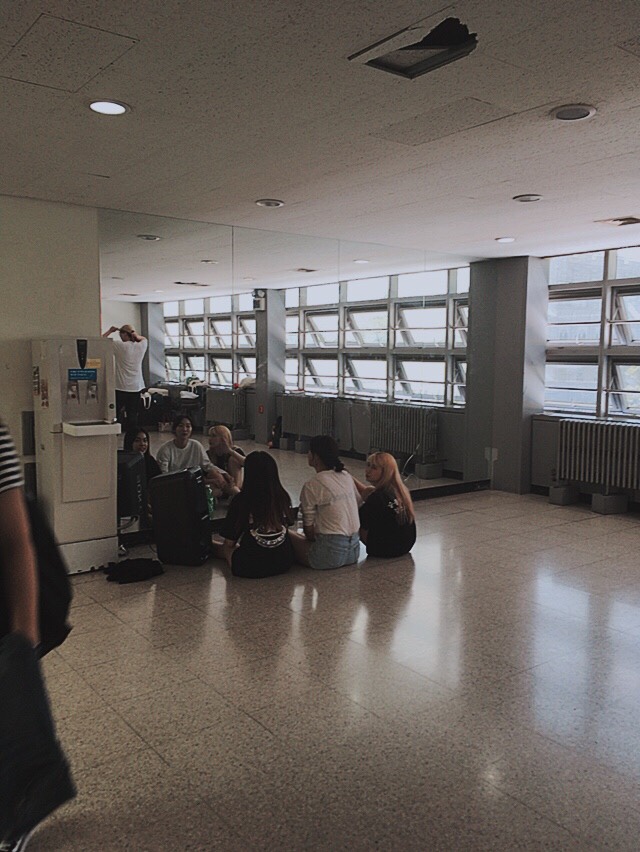
For quite a while, my lowered self esteem put me off my dream, making me wonder if I would really ever to make it as a dancer. At the same time, I had started my first year in university, and the only thought I had was to blend into Korean university life and make friends. I joined my school’s street dance club and it opened my eyes to a whole new level of dancing. With my busy schedule, I also lacked the time to chase after K-Pop idols; it forced me to focus more on school and socialising.
Out of the new batch of freshies that joined the street dance club, only a few had previous dance backgrounds, so we just started from the basics. It was tough, but by the end of the year, I could already feel myself improving. We organised freestyle dance battles, and it was during those moments that I truly let myself listen to the music and let my body take over my mind. I was happy and since I lived in the dormitory, I could easily access the student union building where our practice room was.
And then, at the end of year 2, I saw the recruitment notice from one of the dance teams that I had auditioned for years ago.
Maybe because it felt like my last chance, or maybe I wanted to know how much I had improved during the past 2 years. Eventually, I ended up applying for the audition because who knew what could happen?
Surprisingly, I passed.
I was 22 and halfway through my undergraduate studies. If I were to really commit to this, it would mean taking a term break, which I could not afford to do so.
As part of my student visa, there was a lot of restrictions basically stating that if I were to take a semester off, the university would contact the immigration office to revoke my student visa. I would then have to leave and enter Korea using a tourist visa, before applying for the student visa all over again if I wanted to continue my studies. Not to mention, I would also have to explain to my parents what I had been up to.
Still, I did not want to give up this rare opportunity that had been given to me.
Perhaps it was the way I was brought up, or perhaps I was content with where I had finally gotten to in life. I questioned whether I really needed this. Since I wasn’t that into K-Pop anymore, I didn’t see myself ‘needing’ to become a background dancer. I thought that if things didn’t work out, hey, at least I still had a university degree.
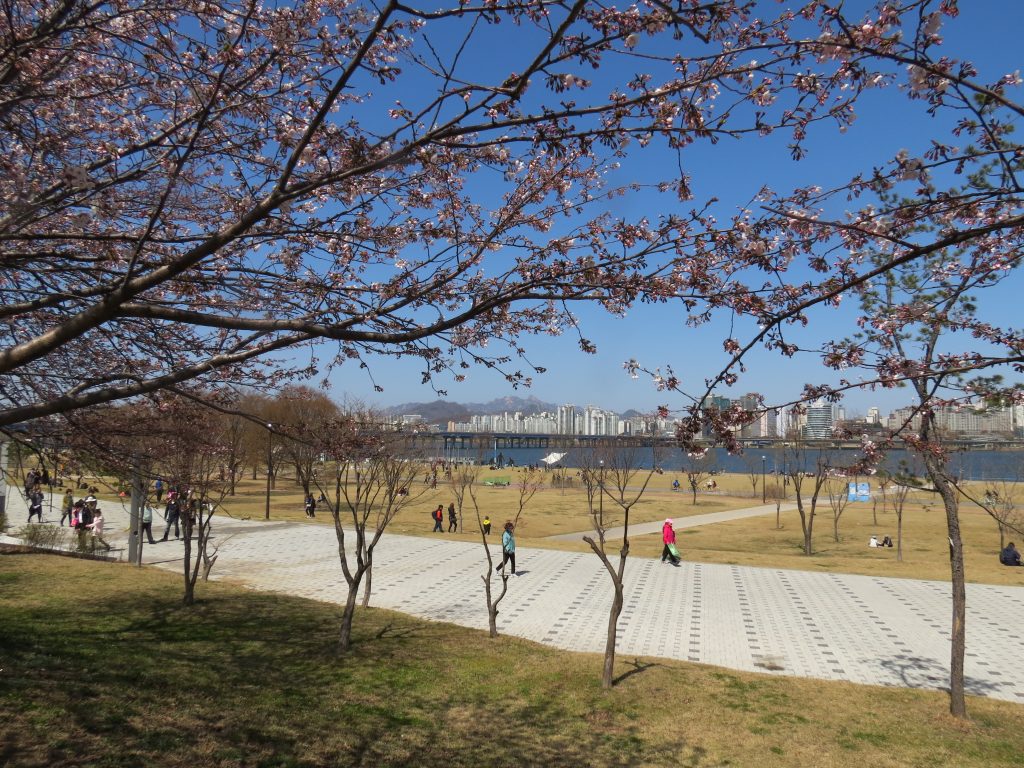
Including me, there were 5 girls who had passed the audition. I still vividly remember being the oldest, with the youngest being only 18. Was I stressed? Definitely.
The first thing we were told to do after entering the dance studio was to clean it up. So we took the broom and vacuum cleaner, and went to work making sure the place was spotless before the remaining ‘sunbaes’ (seniors in Korean) arrived.
I then spent the next 8 to 9 hours learning a choreography over and over again with only water breaks in between. When they finally said we could go, I almost burst into tears on the train home. It was definitely not what I had expected.
All this time, the background dancers that I had followed on Instagram appeared so happy and close to each other. Compared to the repetitive instructions and scoldings I received, the team that I had imagined joining seemed like a lot more fun.
Call me naive, but this was what I thought—that we would be dancing happily and making wonderful memories with one another.
But because of how physically and mentally challenging it was, I felt the urge to just quit. I was hungry and tired, and when my roommates asked me where I had been the entire day, I could not help but let the tears fall.
Since young, I’ve not been someone with the best health. I used to have asthma, and had several fainting episodes in primary and secondary school, and then in JC. It was embarrassing, but with my weak stamina I would not function well if I didn’t have my 7 hours of sleep daily. I felt that at this rate, my love for dancing would literally kill me.
Being alone in this foreign country made this worse. Sure, I had the friends I made there, but nothing compares to the love you feel in a family. Without the support and encouragement, it was hard having to go through this alone.
Korean culture is also very hierarchical, and I felt this clearly in my team of background dancers, unlike back in my university’s dance team where it was a very family-like atmosphere.
It was not easy deciding if I still wanted to do this, but I felt that it would be a waste if I were to just let go of what was basically the reason why I left Singapore. Many idols wannabes would also think that it was a super rare opportunity to make it into the team.

Halfway through a break, one of the ‘unnies’ (older sister in Korean) came over to tell another girl and I that we had to lose 5kg. I was not even surprised. As a K-Pop fangirl, I had heard so many stories of idol trainees being told to lose weight. I was 163cm tall and weighed 51kg. I believed I was ‘decent’ for someone of my height.
It got me thinking: if the people sharing the same stage as idols have to go through something like this, how much worse is it for the idols themselves? Once again, we were not given meal breaks, and I thought to myself that I would lose the 5kg in no time.
At the end of the day, I felt weak and sick of what I had to endure. Instead of feeling the joy and delight I used to feel whenever I danced, I felt abused and disappointed.
Before I finally snuggled under my warm blankets that night, I texted the person in charge and told her that I could not go through the training anymore; I had decided to leave the team on a good note. She agreed.
This experience opened my eyes to the realities of Korean idol culture, and how the industry works. For those who wonder if I regret my decision, I would say both yes and no at the same time. I had tried simply because I thought that the background dance scene would not be as bad as those of the K-Pop idol trainees.
Perhaps if I were younger and did not have the commitment to my studies, there might be a chance that I would just stay to train my ass off, just like how many young Koreans would. In Singapore, the judgment of others and importance of completing my formal education would never allow me to make it happen.
On the other hand, I did not regret leaving the team because I eventually realised that turning my hobby into a career was a mistake. I had tried and it did not suit me.
I also realised: the attention I could receive on stage with K-Pop idols would be only temporary. What would I be left with after that?
I remained in contact with one of the girls on that same dance team. A month later, she told me she had left as well because she couldn’t take the strenuous practice. She also shared that another girl had arrived after I left, only to leave two days later.
Sometimes, I still look up at the team’s group Instagram account, and the only familiar face I spot is that of the youngest girl. She was only a high school graduate at the time, and had mentioned that she did not have plans to further her studies in either dancing or other majors. Maybe that was why she stayed; she too needed to survive in this harsh society.
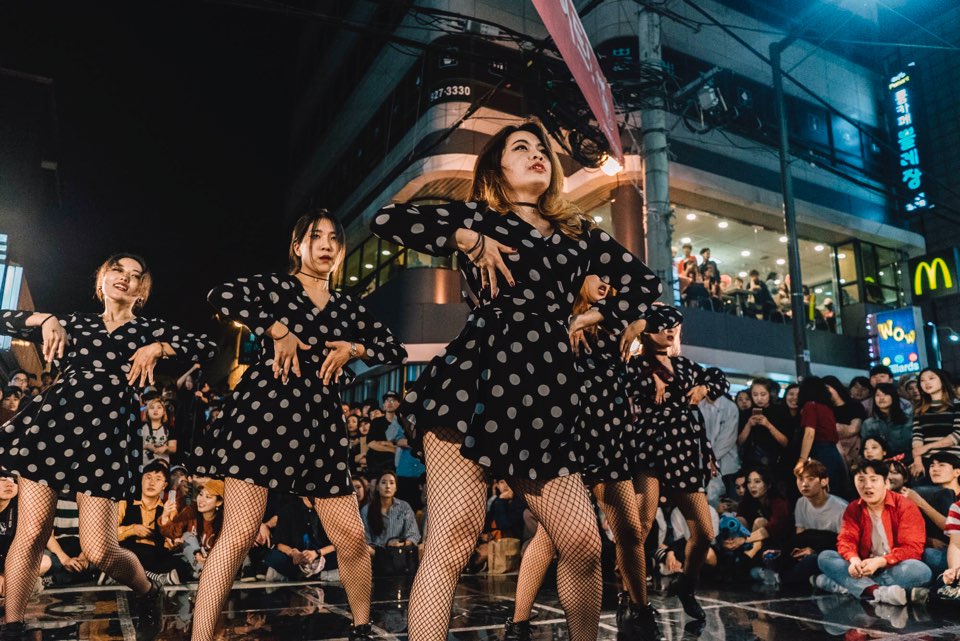
Looking at the weekly K-Pop music shows and seeing the background dancers now and then, I still think about what might have happened had I persevered.
Yet quickly enough, the thoughts of going through the horrible things I had experienced would resurface. After all, the rigid and repetitive system of the team isn’t easy for anyone to accommodate.
Across my years in university, I had also discovered an interest in writing, leading me to pursue a path in other things that are also related to K-Pop. Call me superstitious, but as a Libra, I still feel the need to balance what I like with what I can do. I find peace when I stumble on the right amount on each scale.
And so I now know, sticking with dancing as a hobby was definitely the better choice.
